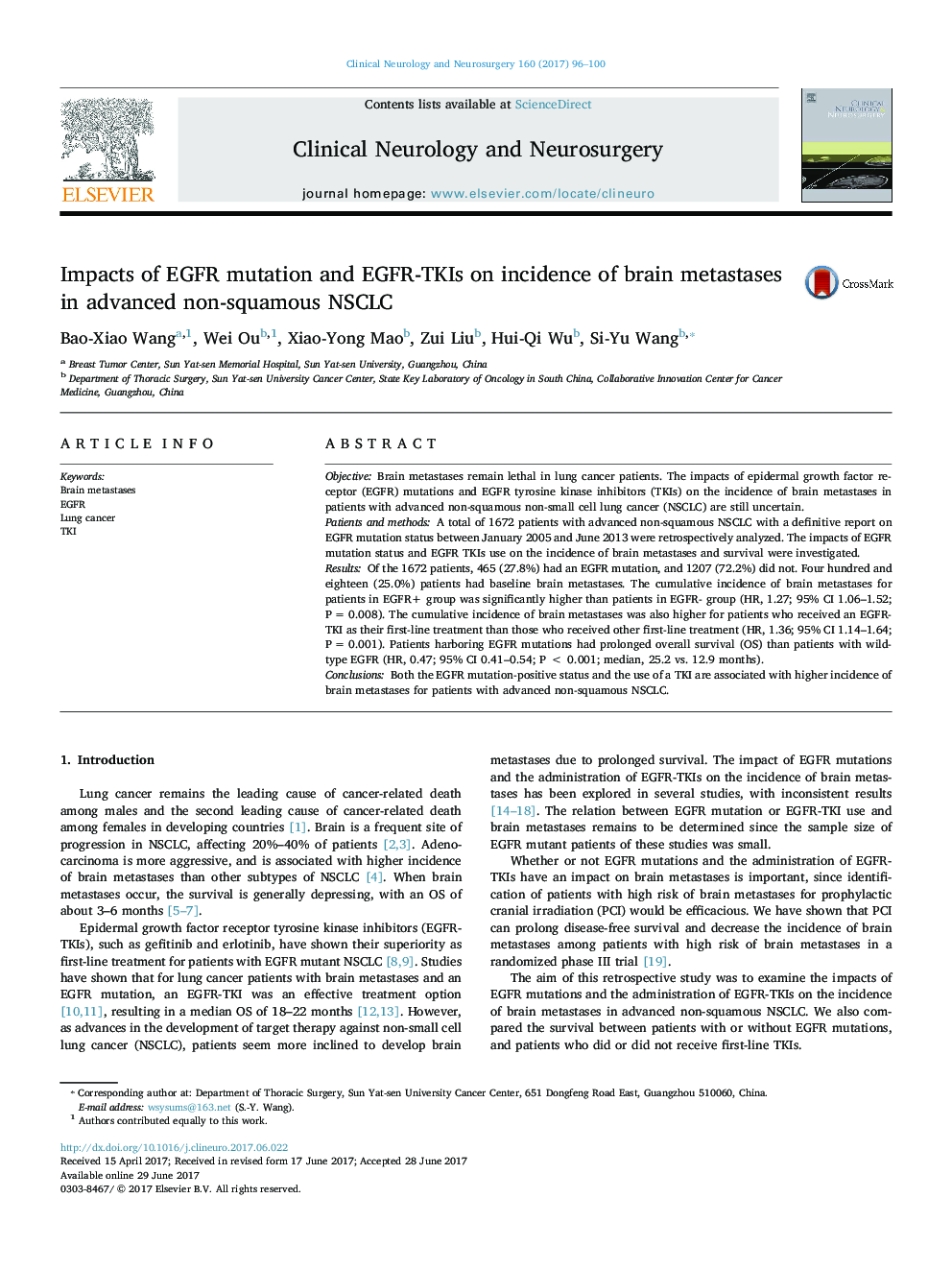| کد مقاله | کد نشریه | سال انتشار | مقاله انگلیسی | نسخه تمام متن |
|---|---|---|---|---|
| 5626950 | 1579662 | 2017 | 5 صفحه PDF | دانلود رایگان |

- EGFR mutation is associated with higher incidence of brain metastases for patients with advanced non-squamous NSCLC.
- The use of a TKI is associated with higher incidence of brain metastases for patients with advanced non-squamous NSCLC.
- For patients with brain metastases, the survival was significantly longer in EGFR+ patients than in EGFR- patients.
ObjectiveBrain metastases remain lethal in lung cancer patients. The impacts of epidermal growth factor receptor (EGFR) mutations and EGFR tyrosine kinase inhibitors (TKIs) on the incidence of brain metastases in patients with advanced non-squamous non-small cell lung cancer (NSCLC) are still uncertain.Patients and methodsA total of 1672 patients with advanced non-squamous NSCLC with a definitive report on EGFR mutation status between January 2005 and June 2013 were retrospectively analyzed. The impacts of EGFR mutation status and EGFR TKIs use on the incidence of brain metastases and survival were investigated.ResultsOf the 1672 patients, 465 (27.8%) had an EGFR mutation, and 1207 (72.2%) did not. Four hundred and eighteen (25.0%) patients had baseline brain metastases. The cumulative incidence of brain metastases for patients in EGFR+ group was significantly higher than patients in EGFR- group (HR, 1.27; 95% CI 1.06-1.52; PÂ =Â 0.008). The cumulative incidence of brain metastases was also higher for patients who received an EGFR-TKI as their first-line treatment than those who received other first-line treatment (HR, 1.36; 95% CI 1.14-1.64; PÂ =Â 0.001). Patients harboring EGFR mutations had prolonged overall survival (OS) than patients with wild-type EGFR (HR, 0.47; 95% CI 0.41-0.54; PÂ <Â 0.001; median, 25.2 vs. 12.9 months).ConclusionsBoth the EGFR mutation-positive status and the use of a TKI are associated with higher incidence of brain metastases for patients with advanced non-squamous NSCLC.
Journal: Clinical Neurology and Neurosurgery - Volume 160, September 2017, Pages 96-100